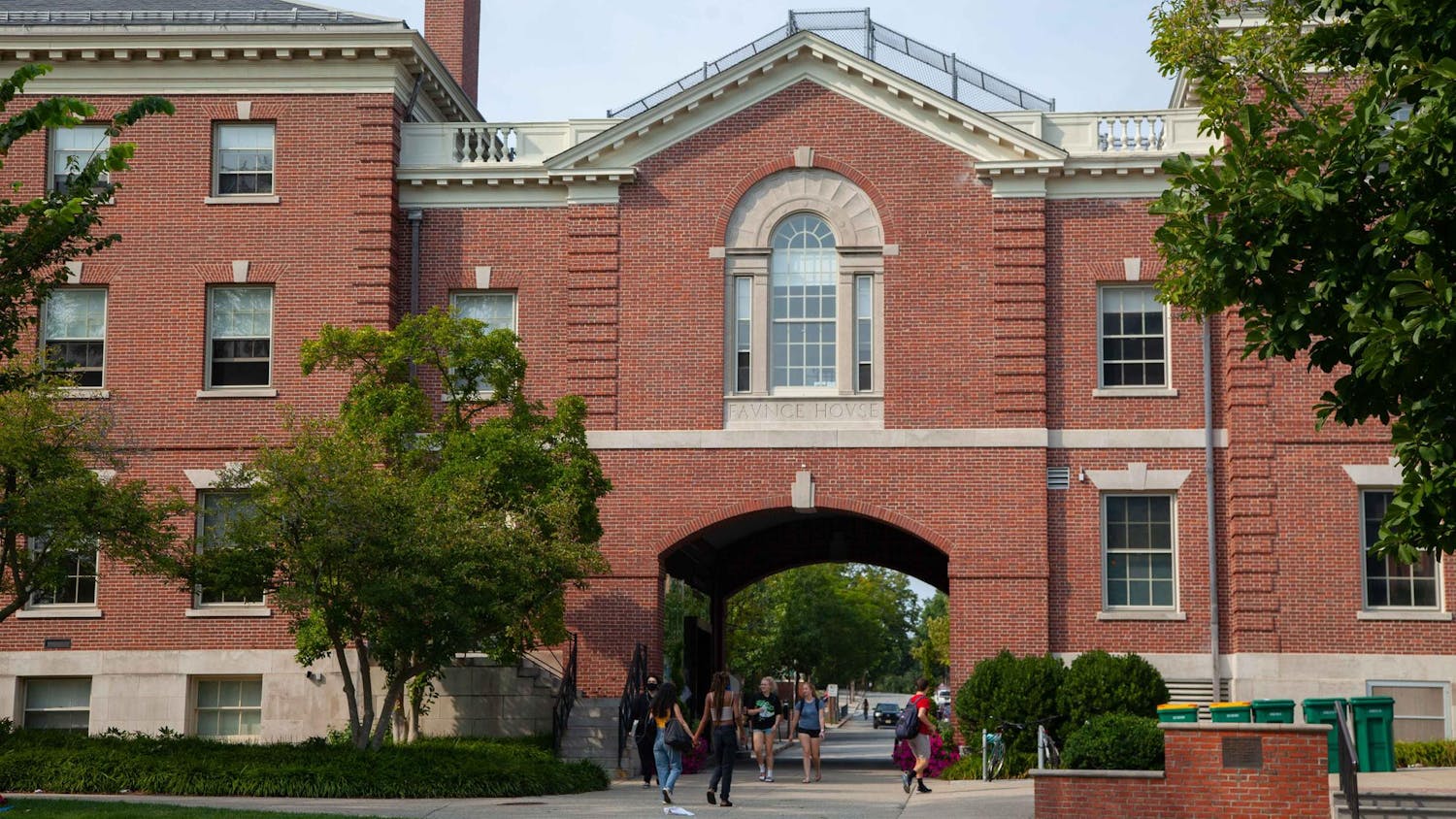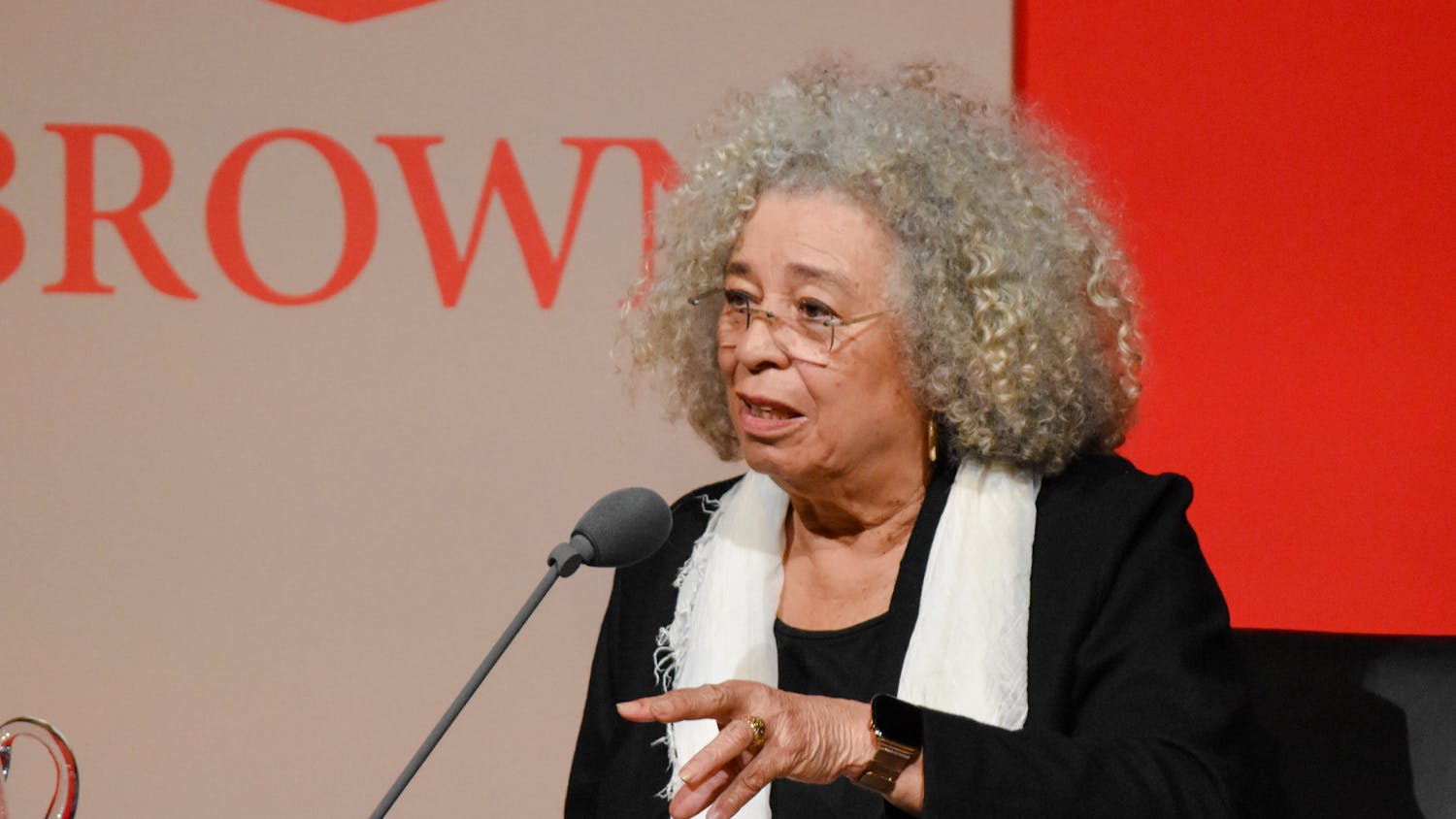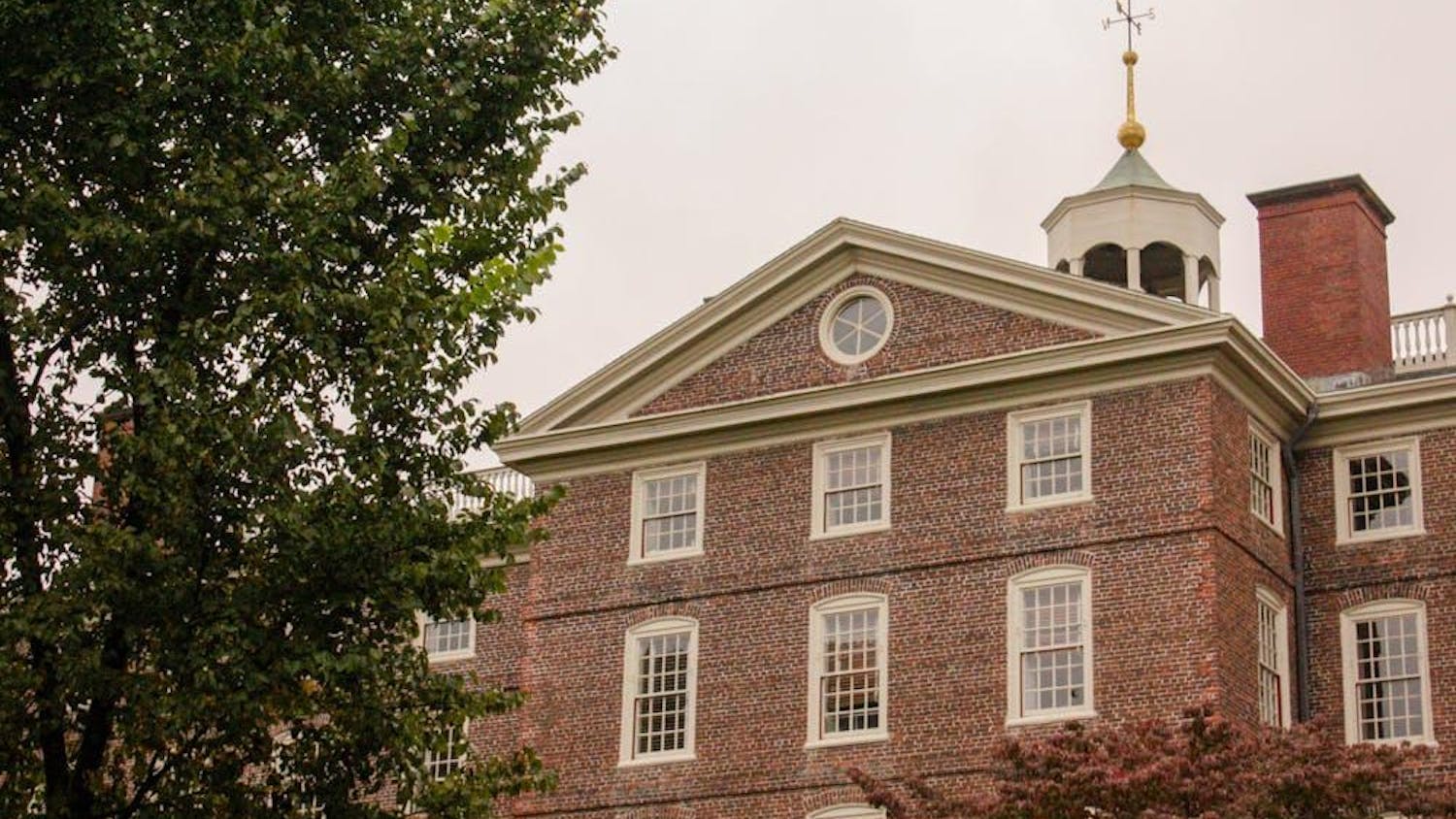In an effort to strengthen ties to the Rhode Island community and promote dynamic economic growth, the University partnered with the government, industry and other universities to launch the Brown and the Innovation Economy initiative June 28. Through this program, the University will work with state actors to fulfill goals outlined in the strategic plan, such as talent development and retention, industry engagement, building the capacity for innovation, fostering entrepreneurship and building regional networks.
“The goal of this team was to figure out how Brown could play the most productive role in innovation and job creation in Rhode Island,” said Massachusetts Institute of Technology PhD candidate Benjamin Armstrong, who worked on the initiative. Brown “has a lot of projects that have direct implications for the local economy, … but we wanted to figure out what the larger narrative was around those programs,” he added.
A team led by Provost Richard Locke P’18 put together a strategic plan that built on some of the University’s previous work on the economy and entrepreneurship. Increased work with Rhode Island’s economy expands on Building on Distinction: A New Plan for Brown, a 10-year strategy launched in 2014. However, though the University had several new initiatives and is the state’s second largest private employer, Locke wanted to find a way to “have a more coordinated approach to all this activity, so it could have a higher impact on the local economy in a way that would promote innovation, job creation (and) entrepreneurship,” he said.
The strategic plan outlines the initiative’s five major focuses in an effort to address economic challenges in the state. These include Brown Biomedical Initiatives Inc., Brown Venture Founders, industry engagement, the Rhode Island Innovation Hub and commercialization-friendly policies and trainings.
The University’s umbrella program, the Innovation Economy initiative, utilizes Armstrong’s research on the role of universities on their regional economies to find useful models for the University’s place in Rhode Island. “I’ve studied a number of regions in the United States … that have recovered from economic decline and industrialization successfully” while some have had a tougher time, he said. From this work, Armstrong found examples of regions that were able to combat decline and adapt to changing industries, which provide a model for the University.
“What we thought was most important is not to try to replicate or copy someone else’s model,” Locke said, “but to develop our own by learning from the others what worked and what didn’t.” The initiative invited guests from institutions like Carnegie Mellon University, Northwestern University and MIT to talk about their ideas and experiences, he added.
One of the five focuses of the strategic plan, Brown Venture Founders, is a program started by the Nelson Center for Entrepreneurship. It is designed to motivate an individual or team graduating from the University “to commit to working on their startup by putting roots down here in Providence and launching and growing their startup here locally,” said Executive Director Daniel Warshay ’87.
“Startups, when they become bigger, and even from the beginning, need to hire people, and they’re a source of job creation in this economy,” Warshay said. “That’s what Rhode Island in general is trying to do, to attract employers to launch here, to move here, to be here, to grow here, and so it’s really important for us to support those efforts.” One way the University can do that is by encouraging student startups to stay and work in Rhode Island.
While it may not make sense for all companies to stay in the state since they may be serving a broader or different community, the first Venture Founders prize went to the student-created software company TextUp, which has chosen to stay in Rhode Island. “They’re getting a lot of attention from local resources besides us, and they’re putting down roots here, like we anticipated they would,” Warshay said.
Executive Director of Industry Engagement and Commercial Venturing Daniel Behr plays a major role in almost all of the initiatives set forth by the University. Behr’s office “helps to move innovations that are coming out of the research labs into the real world,” he said, “so it’s a lab-to-market transition.”
Sections of the plan are not solely focused on the University and its students, but also on how to support R.I. citizens in becoming entrepreneurs and having more job opportunities. The Rhode Island Innovation Hub tackles this goal. “The Innovation Hub is not intended to be a Brown initiative — it is a Rhode Island initiative,” Behr said. “We just want to create a space for startups and projects like that to be housed here locally,” he added.
The University is also working with other local universities and politicians to support the economy. Among the institutions the University is working with is Rhode Island College. President Christina Paxson P’19 and RIC President Frank Sanchez teamed up on the Anchor Institution Working Group, an initiative formed by Mayor Jorge Elorza to promote an innovation-based economy and review the Mayor’s Urban Innovation District Strategy, according to the strategic plan.
President Sanchez shares many of the University’s goals for Rhode Island’s economy. “Over 70 percent of our graduates stay in Rhode Island to live, work and raise their families. We are a powerful pipeline for the state’s economy,” he wrote in an email to The Herald. Sanchez added that RIC’s role is “to prepare more Rhode Islanders for tomorrow’s economy by developing comprehensive skills in written and oral communications, analytical thinking, team work and, just as importantly, being able to thrive in diverse settings,” he wrote.
Locke hopes that this initiative will encourage Brown students to be more involved and conscientious within their community. He hopes students will be “thinking about how they could translate the work that they’re doing into positive change in the local community” in various sectors and research programs, he said.
The initiative is a joint effort between Locke, his chief of staff Marisa Quinn, Executive Vice President for Planning and Policy Russell Carey, Assistant Vice President, Government and Community Relations Albert Dahlberg, Armstrong and Warshay.





